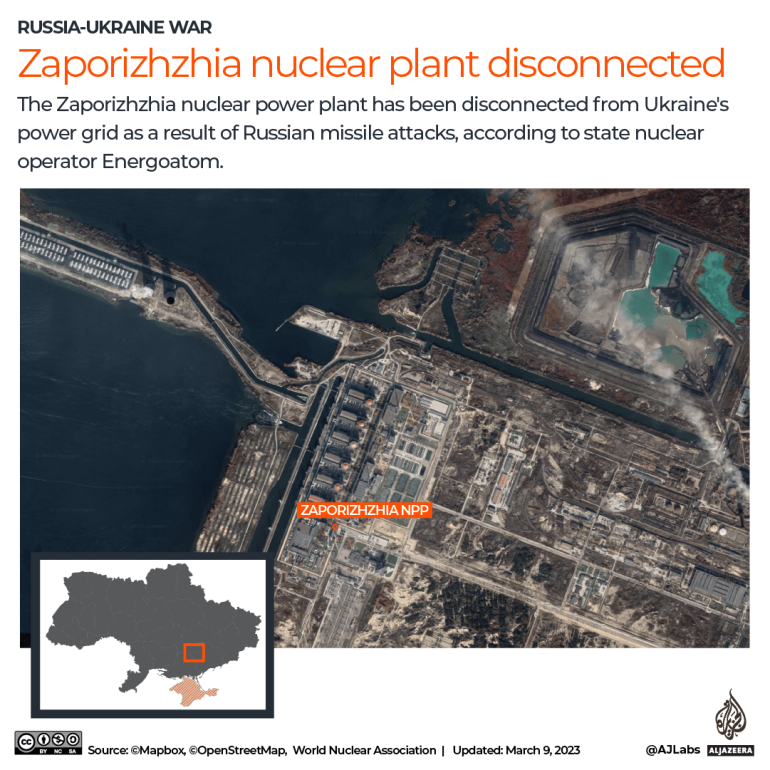
UN International Atomic Energy Agency (IAEA) chief Rafael Grossi has urged Ukraine and Russia to adhere to “concrete principles” to prevent nuclear catastrophe at Ukraine’s Zaporizhzhia nuclear plant.
Grossi, speaking to the United Nations Security Council on Tuesday, said the nuclear safety and security situation at the Zaporizhzhia power plant “continues to be extremely fragile and dangerous”.
He urged both sides to respect five principles to safeguard the power plant, suggesting he had not secured their agreement on protecting the facility.
The IAEA chief urged in particular that the plant not to be used as a base for heavy weapons, such as multiple rocket launchers, artillery systems and munitions and tanks, or for military personnel that could be used for an attack from the plant – one of the five principles.
His five principles also included that there should be no attack on or from the plant. 
IAEA chief’s efforts
Grossi has been trying for months to establish an agreement to reduce the risk of a catastrophic nuclear accident from military activity, such as shelling at Europe’s biggest nuclear power plant, which is in Ukraine and has been occupied by Russia for more than a year.
Zaporizhzhia used to supply about 20 percent of Ukraine’s electricity and continued to function in the early months of Russia’s offensive despite frequent shelling, before halting power production in September.
In a briefing to the UN Security Council, Grossi also called for off-site power to the plant to remain available and secure, for all its essential systems to be protected from attacks or acts of sabotage, and for no action to be taken that undermines these principles.
“Military activities continue in the region and may increase very considerably in the near future,” Grossi said.
“There have been seven occasions when the site lost all of site power, and had to rely on emergency diesel generators, which is, as you know, the last line of defence against nuclear accidents.”







